Sicilian is termed as a dialect of Italy but it is actually a language on its own. Having origins from Latin, Arabic and Greek along with German and Catalan influences, Sicilian is often said to be a complicated language. Sicilian words and phrases are difficult to understand even for Italian speakers! But despite the complications, Sicilian is also a very beautiful language! In light of this, I am honored to have Andrew Edwards and Suzanne Edwards. Two passionate travelers and co-authors of Sicily- a Literary Guide for Travellers, the two share “15 Must Know Phrases for the Sicilian in You”. These Sicilian phrases are carefully compiled by the duo from their favorite books and authors!
15 Must Know Phrases for the Sicilian in You!
1. Annacamento
Taken from the book, L’arte di annacarsi by Roberto Alajmo, annacamento is a Sicilian word with no direct translation in Italian or English. The author describes this word as ‘maximum movement with minimum displacement’. So the word is a metaphor used for his journey around Sicily in the aforementioned book!
2. Aqua in bocca
This is a very well-known phrase in Italian and is also the title of books written by Andrea Camilleri and Carlo Lucarelli. It literally means ‘water in the mouth’ but translates as ‘keep it quiet’.
3. Nessunu nasci duttu tra stu munnu
Nessunu nasci dutto tra stu munnu is a Sicilian phrase used by the poet Giovanni Meli. This phrase was written by Meli in a continuation of Cervantes’ Don Chisciotti e Sanciu Panza (Don Quixote). It means ‘nobody is born with learning in this world’.
4. Troppu trafficu ppi nenti
Another must know phrase for the Sicilian in you is troppo trafficu ppi nenti. This comes from the very wild theory that says Shakespeare was Sicilian! Having fun with this notion, Andrea Camilleri and Giuseppe Dipasquale turned Molto rumore per nulla (Much Ado About Nothing) into Sicilian. It was aptly titled “Troppo trafficu ppi nenti”.
5. O Messina, Messina, un dí sarai meschina!
Taken from Italo Calvino’s, Fiabe Italiane (Italian Fables), O Messina, Messina, un di sarai meschina deals with the legend of Colapesce
. Under Messina, there are three columns – fine, chipped and broken and when Colapesce, the boy who saves Sicily, dives down and replaces the broken column, the phrase is apt!
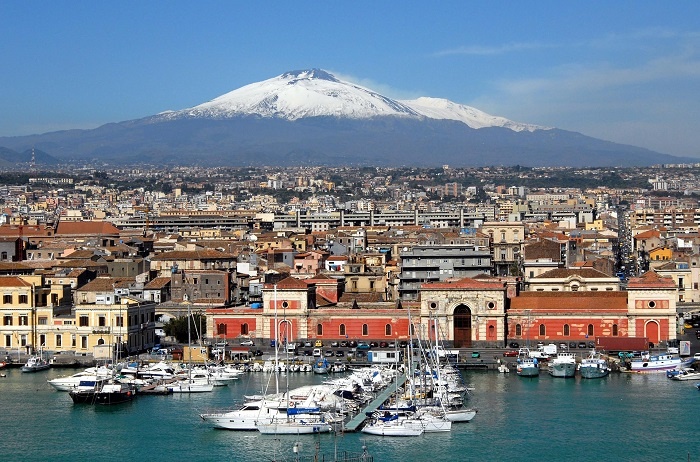
Did you know the letter o often becomes the letter u in Sicilian!
6. Farfantaria
If you’re familiar with the Inspector Montalbano series by Andrea Camilleri in its original language, farfantaria is used many times. It simply means the lies one tells to cover up tricks and foolish shenanigans. Camilleri usually uses it when Montalbano has fabricated something to further an investigation!
7. Mangiarono con la salvietta
Mangiarono con la salvietta is a phrase used by Leonardo Sciascia in Le parrochie di Regalpetra (Salt in the Wound). It’s literal translation is ‘they ate with napkins’ but it truly means the connotation of expressing a solemn satisfaction about something!
8. Sferracavallo
A Sicilian phrase which means ‘unshodhorses’ (without iron horseshoes), sferracavallo is used by Alejandro Luque in Viaje a la Sicilia con un guía ciego (Borges in Sicily). It is locally referred to as Sferracavaddu.
9. Quanto valga un’ombra l’umorista sa bene
This phrase comes from Luigi Pirandello’s essay, L’umorismo (Humour) and means ‘The humorist knows how much a shadow is worth.’ This also sums up Pirandello’s lifelong literary investigation into the masks we all wear!!
10. Quaquaraqua
A word that has cropped up in many books, quaquaraqua is simply how it sounds. It means a ‘quack’, a ‘nobody’ or a ‘blabbermouth’!
11. Chi apparisci a nui vantaggiu, tanti voti è molestia o disaggiu
This is another Sicilian phrase taken from Giovanni Meli book Favuli Morali (Moral Fables). It means ‘What appears to us to be an advantage, is often a nuisance and a pain’.
12. Taliano
Another Sicilian phrase from the quintessential Andrea Camilleri, taliano often comes when Catarella mangles the Italian language. So Fazio points out to Montalbano saying that Catarella is trying to speak ‘taliano’ again!!
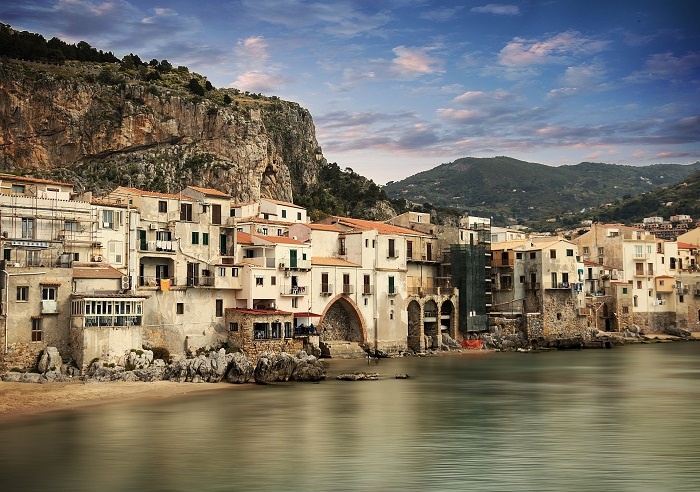
13. Si liccanu la sarda
This commonly used Sicilian proverb, often used in many novels, literally means ‘they lick the sardine’. It actually infers that they are so mean that they lick the sardine rather than eat it!!
Read also: Best Travel Books on Sicily
14. T’avissi a mettiri na màschira
Another Sicilian phrase from the literature of Luigi Pirandello, t’avissi a mettiri na màschira means ‘you ought to be wearing a mask’. This phrase implies covering up someone’s embarrassment or shame.
15. Se vogliamo che tutto rimanga com’è, bisogna che tutto cambi
This classic Italian phrase is taken from Giuseppe Tomasi di Lampedusa’s exceptional book Gattopardo (The Leopard). It means ‘If we want everything to remain the same, everything needs to change’.
All in all, Sicilians have a love-hate relationship with this sentiment and many would like to see its world-weary message disappear!!
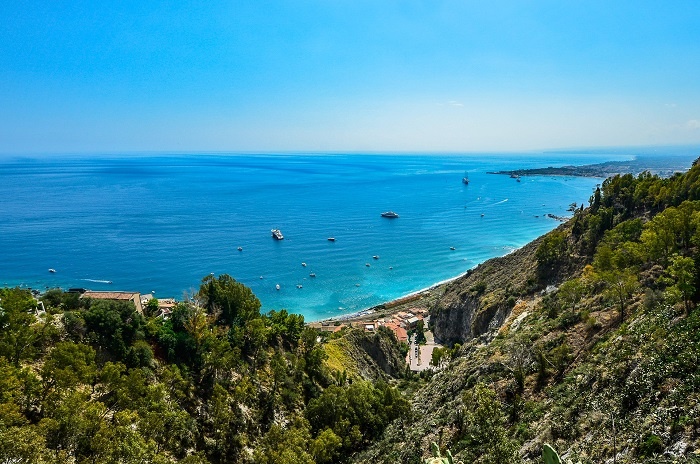
This is a collaborative post by Andrew and Suzanne Edwards. They are the authors of Sicily: A Literary Guide for Travellers and Andalucía: A Literary Guide for Travellers. Additionally, they have also written His Master’s Reflection, a biography of Lord Byron’s doctor, John Polidori and Ghosts of the Belle Époque, a history of the Grand Hotel et des Palmes, Palermo. Andrew is also the translator of the books Borges in Sicily and The Sicilian Defence.
Hope you enjoyed this list of 15 must know phrases for the Sicilian in you!
Read Next:
- Amalfi Must Do: Pasticceria Sal De Riso
- How to visit the Amalfi Coast from Salerno
- Arrivederci Montalbano- thoughts on Riccardino
- Basilica di Superga with the moon- una meraviglia
- The view from Vomero Hill, Naples
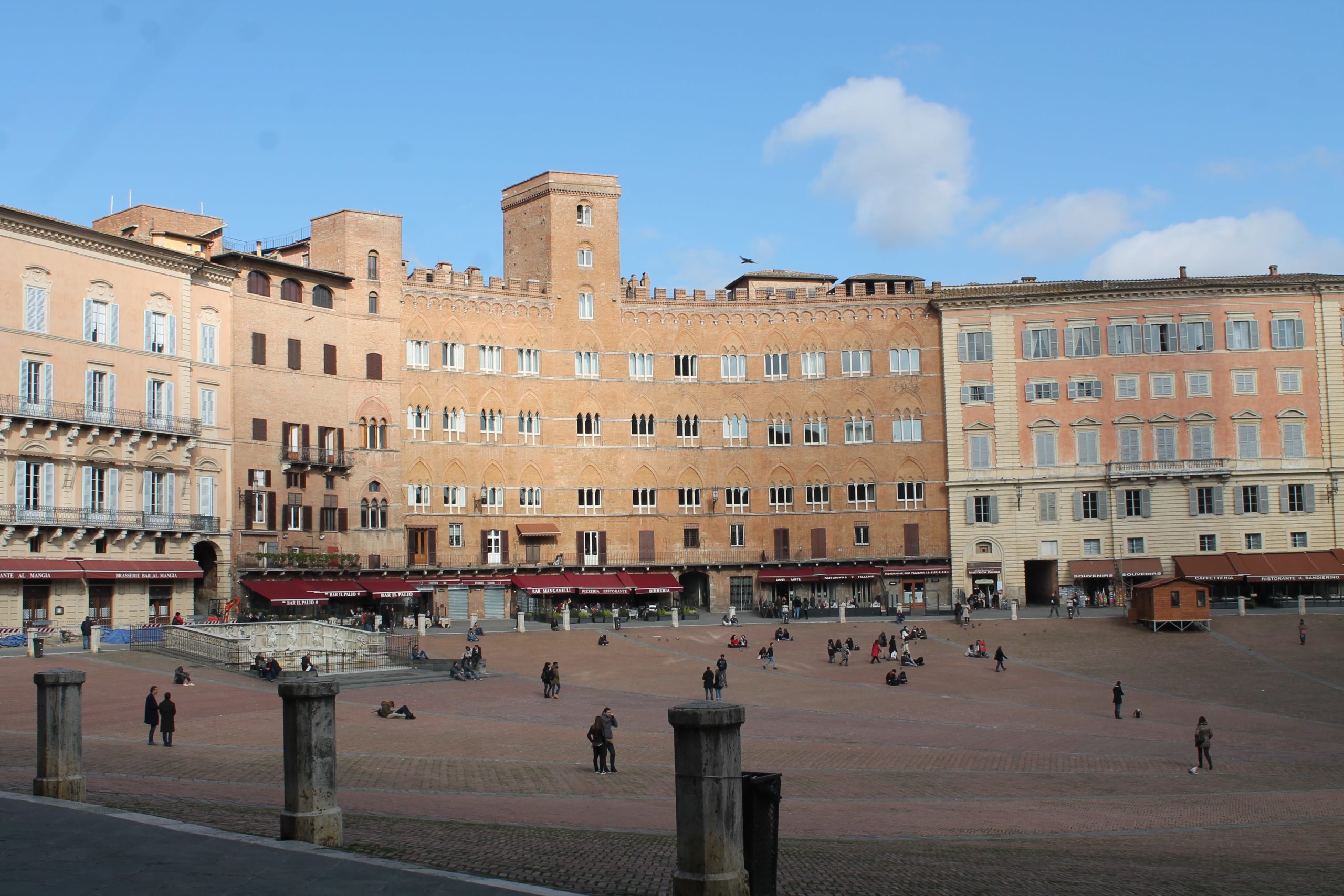

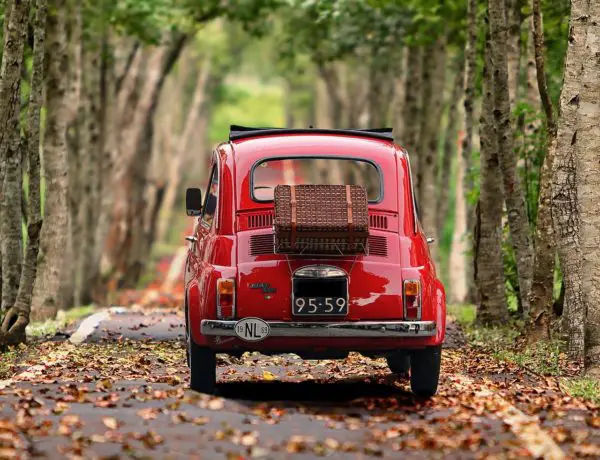
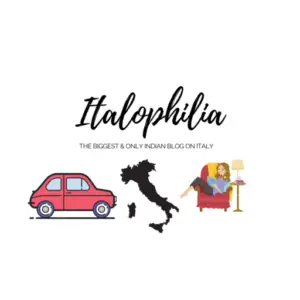

10 Comments
KenS
January 2, 2021 at 12:18 amSo many different dialects. Thanks for these. Growing up in NY and around many Sicilians and Italians in general, my father used an expression which I thought sounded like the sardines ate the anchovies when asked how he is. I am trying to find the actual phrase. I hope you or a reader will be able to help. Thanks, and I look forward to learning more.
Italophilia
January 3, 2021 at 9:07 pmYes, intriguing and fascinating isn’t it?? To know of new dialects while growing up must have been great. Unfortunately I’m unable to help with this expression you mentioned but I do hope someone else can. I’ll direct your comment to the guest post writers 🙂
LuLu B - Calabrisella Mia
August 31, 2020 at 12:08 pmIt’s incredible how different the dialects can be from region to region. Sicily is just a coin toss away from Calabria but I still find it hard to understand the Sicilian dialect. I’ve never head any of these phrases, except for “acqua in bocca” since that’s pretty much used throughout Italy.
Italophilia
September 1, 2020 at 3:58 pmI know right??? I find it harder than Neopolitan. Acqua in bocca is quite common. I hope the others were good knowledge for you.
Kathryn Occhipinti
August 26, 2020 at 12:54 amActually, the Sicilian letter “u” at the end of a word was changed to an “o” when Italian was created. Nice post!
Italophilia
August 26, 2020 at 11:55 amThanks for sharing. Grazie!
KareninCalabria
August 20, 2020 at 12:23 pmQuaquaraqua! Ha, ha – reminds me of Donald Duck. I think that other than “acqua in bocca”, the only phrase I might be able to sort of work naturally into conversation is, “Troppo trafficu ppi nenti”. Interesting post.
Italophilia
August 20, 2020 at 1:08 pmI know it reminded me of a cartoon haha. Perfect on Donald Duck!
Stefanie Sullivan
August 18, 2020 at 9:54 pmThis was so good! I think the last one is my favorite – “Se vogliamo che tutto rimanga com’è, bisogna che tutto cambi”
Italophilia
August 19, 2020 at 11:43 amThank you Stefanie, a great collaboration! I love that one.